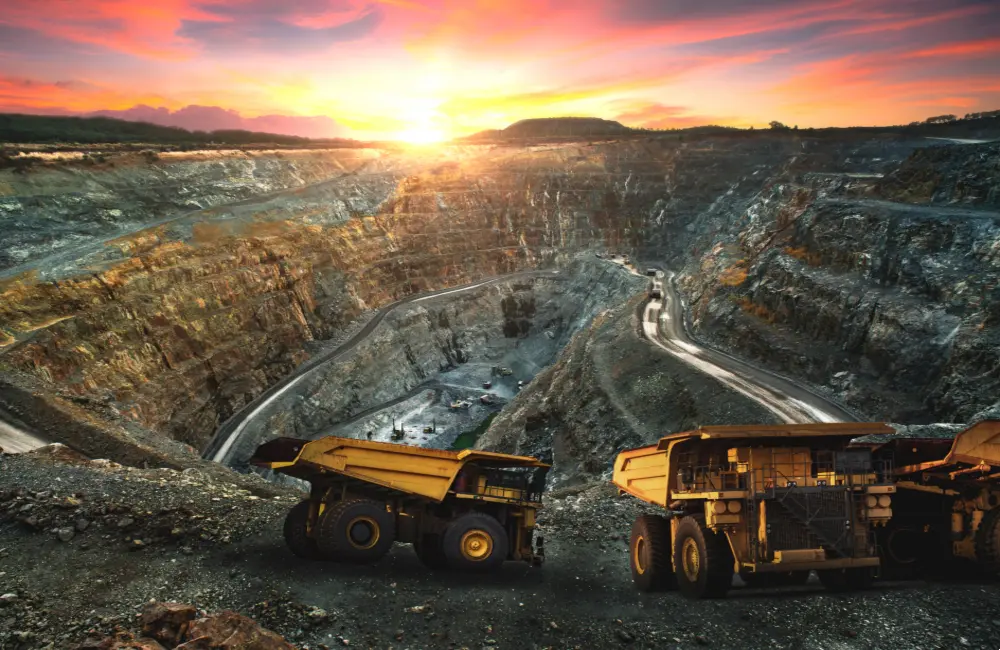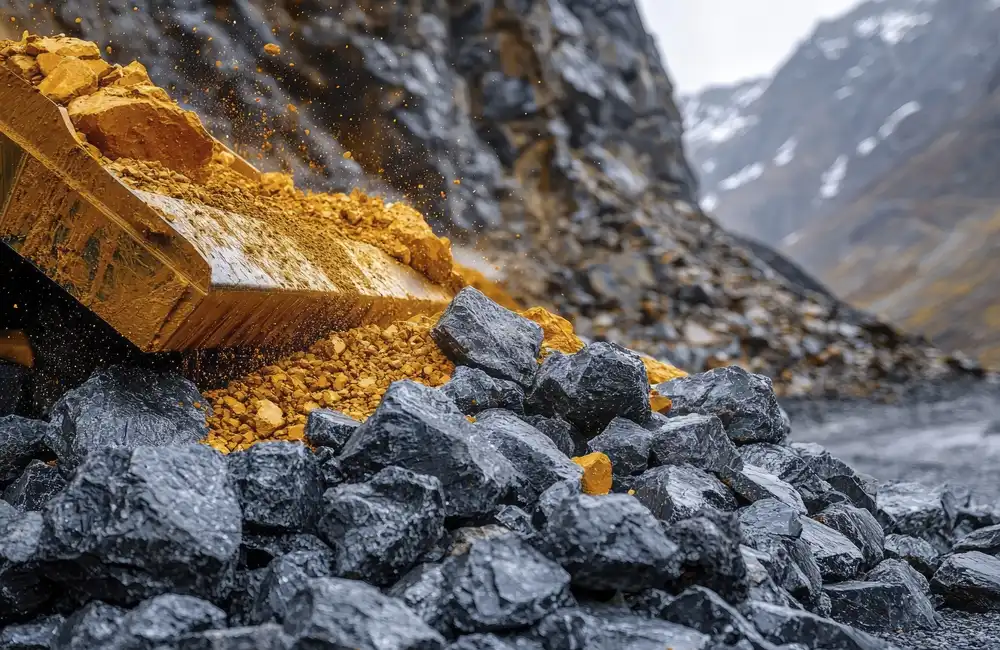The western mining industry has been slow to adopt technological advancement in mineral and metal processing, having depended too much on processed minerals coming out of China in the past two decades, industry representatives said on May 4 at the Mines and Money Connect conference in London.
With China now redefining its environmental priorities, scaling back coal-powered mineral and metals processing, and tightening export controls, global supplies of key metals are being squeezed. This shift is forcing Western companies and governments to increase investments to secure critical mineral supplies.
“Mineral processing has lagged. There’s not been a serious change in technology for 50–70 years … we’re mostly working with hydro or pyro-based extraction processes, and now we have to create something that sits between these two extreme processes,” said Melinda Moore, CEO of Clean Mining. “We’ve been dependent on China for our materials processing for over 20 years, and now that’s going to change.”
China currently accounts for nearly 60% of global primary aluminum production, and around 40% of the world's smelted copper and nickel, according to conference speakers. Reductions in its coal-fed aluminum smelting capacity have contributed to a decline in global aluminum production over the past five months, pushing prices above $3,000/mt before a recent fallback.
China also extracts 60% of the world’s rare earths and processes as much as 93% of rare earth oxides. The country has indicated it will limit new rare earths mining in light of environmental concerns, and a similar stance may soon apply to lithium, of which China processes 80%.
Rare earth mining is controversial due to the presence of radioactive elements like thorium and uranium, leading to community resistance. Additionally, some lithium extraction methods are pollution- and water-intensive.
Western Response and Challenges
Western mining majors such as BHP and Rio Tinto have offloaded in-house mineral processing capacity in recent years, relying more heavily on Chinese processors. However, with many surface-level high-quality deposits already mined, new investments are now targeting deeper, more complex, and often contaminated ore bodies.
“We need a lot more technology to process complex polymetallic resources and fine ore bodies,” Moore said. “Much of what we’re dealing with now is toxic and pollutant-heavy. Even China is tightening its tolerance on impurities.”
Western nations, particularly automakers focused on battery metal supply chains, remain unprepared for China’s renewed dominance in mining and processing, according to Mike Round, operations manager at Cornish Lithium.
“The West suddenly realized we have to do better if we want to manufacture anything again, because China keeps kicking the shit out of us every time. We cannot generate enough lithium,” Round said.
Lithium prices have more than doubled this year due to surging demand from EV manufacturers. S&P Global Commodity Insights assessed Lithium Carbonate CIF North Asia at $75,000/mt on April 29.
Underutilized Resources and Emerging Markets
Round noted that Cornwall’s last working mine shut down in 1998, with minimal investment since. “There won’t be enough lithium supply for the European gigafactories. A calamity is coming soon. The Russia-Ukraine conflict is almost a sideshow,” warned Gaius King, resource analyst at Fox-Davies Capital.
AI has potential in boosting mining productivity, according to Ali Soofastaei, AI program lead at Vale. “But it needs to be adopted as a culture, not just an innovation,” he said. “High mineral prices today can pay for innovation. With iron ore production costs at $24/mt, and current prices at $142.9/dmt CFR North China, the margin is there.”
ESG and Geopolitical Shifts
Environmental, Social, and Governance (ESG) concerns are delaying mine expansions, especially in the Americas. Projects like Anglo American's Los Bronces expansion in Chile and the Resolution copper project in Arizona face hurdles. In response, Western miners are exploring opportunities in Africa and Mongolia, targeting untapped copper and gold deposits.
Mongolia, with 70% of its territory unexplored, is prioritizing mining as part of its post-COVID economic recovery, said Peter Akerley, CEO of Erdene Resource Development. Akobo Minerals CEO Jorgen Evjen identified Ethiopia as an underdeveloped mining jurisdiction, while Roscan Gold’s CEO Nana Sangmuah said he is in talks with investors for a Mali mine project.























